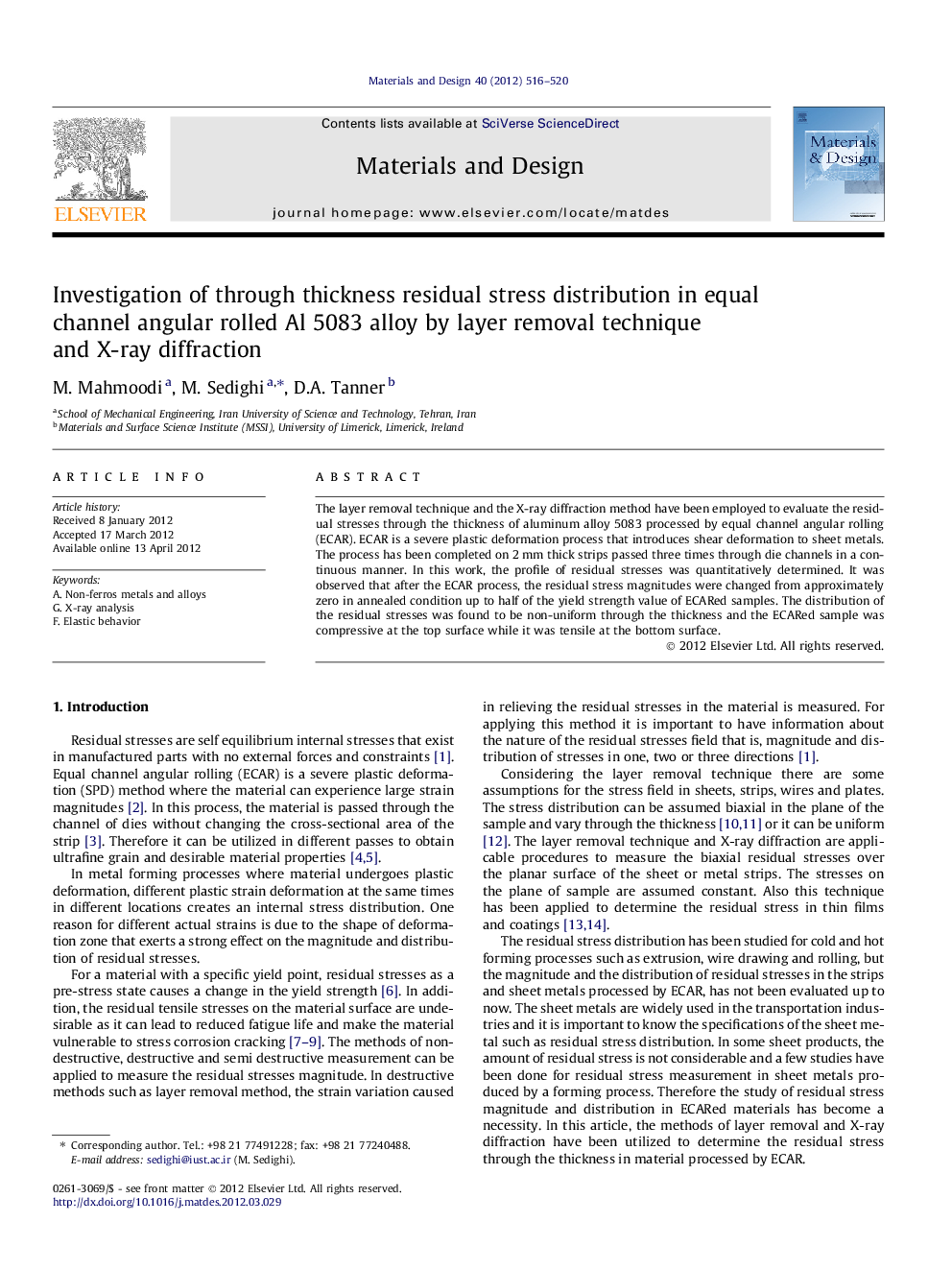| Article ID | Journal | Published Year | Pages | File Type |
|---|---|---|---|---|
| 830633 | Materials & Design (1980-2015) | 2012 | 5 Pages |
The layer removal technique and the X-ray diffraction method have been employed to evaluate the residual stresses through the thickness of aluminum alloy 5083 processed by equal channel angular rolling (ECAR). ECAR is a severe plastic deformation process that introduces shear deformation to sheet metals. The process has been completed on 2 mm thick strips passed three times through die channels in a continuous manner. In this work, the profile of residual stresses was quantitatively determined. It was observed that after the ECAR process, the residual stress magnitudes were changed from approximately zero in annealed condition up to half of the yield strength value of ECARed samples. The distribution of the residual stresses was found to be non-uniform through the thickness and the ECARed sample was compressive at the top surface while it was tensile at the bottom surface.
► We studied the through thickness residual stress (RS) distribution in the ECARed sample. ► The non-uniform RS field was obtained by using the layer removal and XRD methods. ► Modified stresses were calculated from the measured residual stresses. ► The RS values were compressive at the top surface and tensile at the bottom surface. ► The yield strength of the annealed Al 5083 sample was increased after the ECAR passes.
